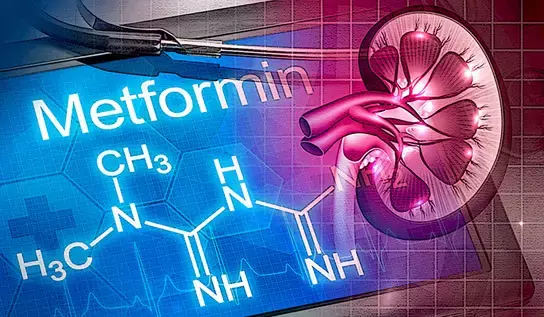- Home
- Medical news & Guidelines
- Anesthesiology
- Cardiology and CTVS
- Critical Care
- Dentistry
- Dermatology
- Diabetes and Endocrinology
- ENT
- Gastroenterology
- Medicine
- Nephrology
- Neurology
- Obstretics-Gynaecology
- Oncology
- Ophthalmology
- Orthopaedics
- Pediatrics-Neonatology
- Psychiatry
- Pulmonology
- Radiology
- Surgery
- Urology
- Laboratory Medicine
- Diet
- Nursing
- Paramedical
- Physiotherapy
- Health news
- Fact Check
- Bone Health Fact Check
- Brain Health Fact Check
- Cancer Related Fact Check
- Child Care Fact Check
- Dental and oral health fact check
- Diabetes and metabolic health fact check
- Diet and Nutrition Fact Check
- Eye and ENT Care Fact Check
- Fitness fact check
- Gut health fact check
- Heart health fact check
- Kidney health fact check
- Medical education fact check
- Men's health fact check
- Respiratory fact check
- Skin and hair care fact check
- Vaccine and Immunization fact check
- Women's health fact check
- AYUSH
- State News
- Andaman and Nicobar Islands
- Andhra Pradesh
- Arunachal Pradesh
- Assam
- Bihar
- Chandigarh
- Chattisgarh
- Dadra and Nagar Haveli
- Daman and Diu
- Delhi
- Goa
- Gujarat
- Haryana
- Himachal Pradesh
- Jammu & Kashmir
- Jharkhand
- Karnataka
- Kerala
- Ladakh
- Lakshadweep
- Madhya Pradesh
- Maharashtra
- Manipur
- Meghalaya
- Mizoram
- Nagaland
- Odisha
- Puducherry
- Punjab
- Rajasthan
- Sikkim
- Tamil Nadu
- Telangana
- Tripura
- Uttar Pradesh
- Uttrakhand
- West Bengal
- Medical Education
- Industry
Metformin Might Have Unfavourable Outcomes in Patients with CKD

Chronic kidney disease (CKD) is becoming a global health challenge. Diabetes mellitus (DM) is one of the most important causes of CKD in several countries. The burden of CVD increases continuously as renal function declines, and individuals with both DM and CKD have an exceptionally high risk of CVD.
A recent study suggests that treatment with metformin was associated with an increased risk of major adverse cardiac and cerebrovascular events (MACCE) but lower all-cause mortality and end-stage renal disease (ESRD).
The study findings were published in the journal Kidney Research and Clinical Practice on November 29, 2021.
Although new classes of anti-diabetes drugs have shown significant benefits in preventing CVD development, metformin is still the first-line drug for DM management. However, the relationship between metformin use and clinical outcomes in CKD remains controversial. Moreover, there is a lack of consensus about the relationship between metformin use and clinical outcomes in patients with CKD. Therefore, Dr Hyoungnae Kim and his team conducted a study to evaluate the relationship between metformin use and the incidence of MACCE, all-cause mortality, and ESRD in CKD patients.
In this nationwide cohort study, the researchers included 97,713 diabetes patients with an estimated glomerular filtration rate of <60 mL/min/1.73 m2 from a large Korean health screening cohort. The major outcome assessed was the incidence of MACCE. The researchers also assessed all-cause mortality and incident end-stage renal disease (ESRD).
Key findings of the study:
- Upon analysis, the researchers found that the metformin users had a significantly higher risk of MACCE than non-users (hazard ratio [HR], 1.20).
- However, during follow up, they found that metformin users had a lower risk of all-cause mortality (HR, 0.78) and ESRD (HR, 0.44) when compared with non-users.
- They noted that the relationships between metformin use and clinical outcomes remained consistent in propensity score matching analyses and subgroup analyses of patients with adequate adherence to anti-diabetes medication.
The authors concluded, "Treatment with metformin was associated with an increased risk of MACCE in patients with diabetes and CKD. However, metformin users had a lower risk of all-cause mortality and ESRD during follow-up than non-users did. Therefore, metformin needs to be carefully used in patients with CKD."
For further information:
DOI: https://doi.org/10.23876/j.krcp.20.222
Medical Dialogues Bureau consists of a team of passionate medical/scientific writers, led by doctors and healthcare researchers. Our team efforts to bring you updated and timely news about the important happenings of the medical and healthcare sector. Our editorial team can be reached at editorial@medicaldialogues.in.
Dr Kamal Kant Kohli-MBBS, DTCD- a chest specialist with more than 30 years of practice and a flair for writing clinical articles, Dr Kamal Kant Kohli joined Medical Dialogues as a Chief Editor of Medical News. Besides writing articles, as an editor, he proofreads and verifies all the medical content published on Medical Dialogues including those coming from journals, studies,medical conferences,guidelines etc. Email: drkohli@medicaldialogues.in. Contact no. 011-43720751


